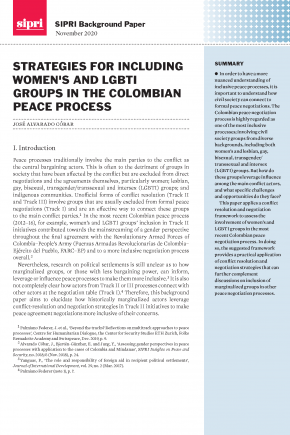Strategies for Including Women’s and LGBTI Groups in the Colombian Peace Process
In order to have a more nuanced understanding of inclusive peace processes, it is important to understand how civil society can connect to formal peace negotiations. The Colombian peace negotiation process is highly regarded as one of the most inclusive processes; involving civil society groups from diverse backgrounds, including both women’s and lesbian, gay, bisexual, transgender/ transsexual and intersex (LGBTI) groups. But how do these groups leverage influence among the main conflict actors, and what specific challenges and opportunities do they face?
This paper applies a conflict resolution and negotiation framework to assess the involvement of women’s and LGBTI groups in the most recent Colombian peace negotiation process. In doing so, the suggested framework provides a practical application of conflict resolution and negotiation strategies that can further complement discussions on inclusion of marginalized groups in other peace negotiation processes.
I. Introduction
II. Methodology
III. Inclusive peace processes
IV. Strategies for meaningful inclusion (2012–16)
V. Challenges
VI. Conclusions and wider implications

